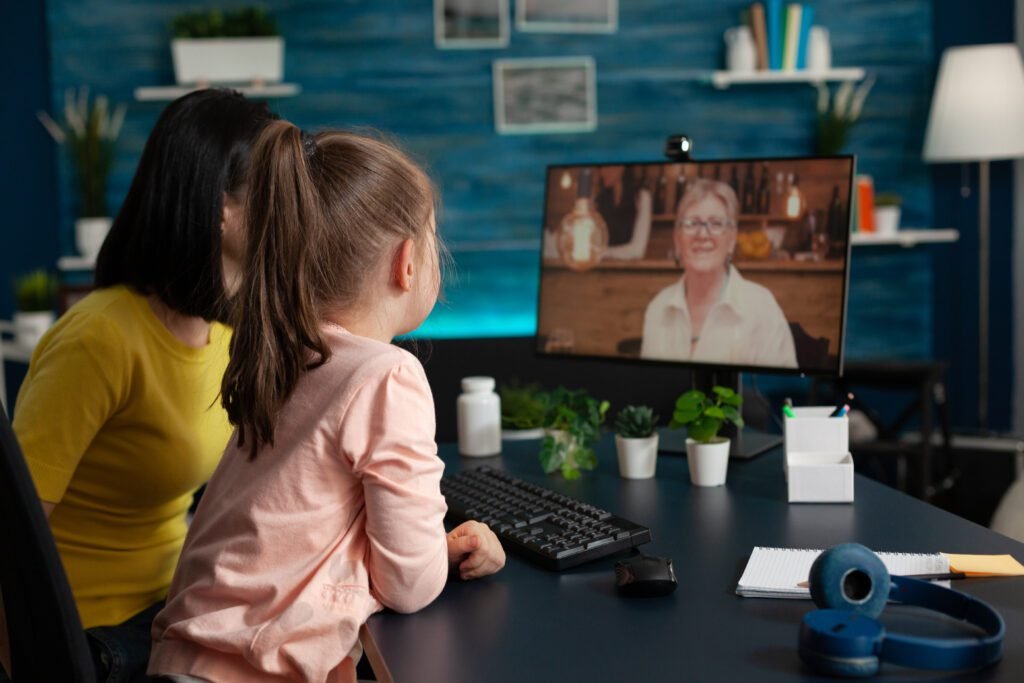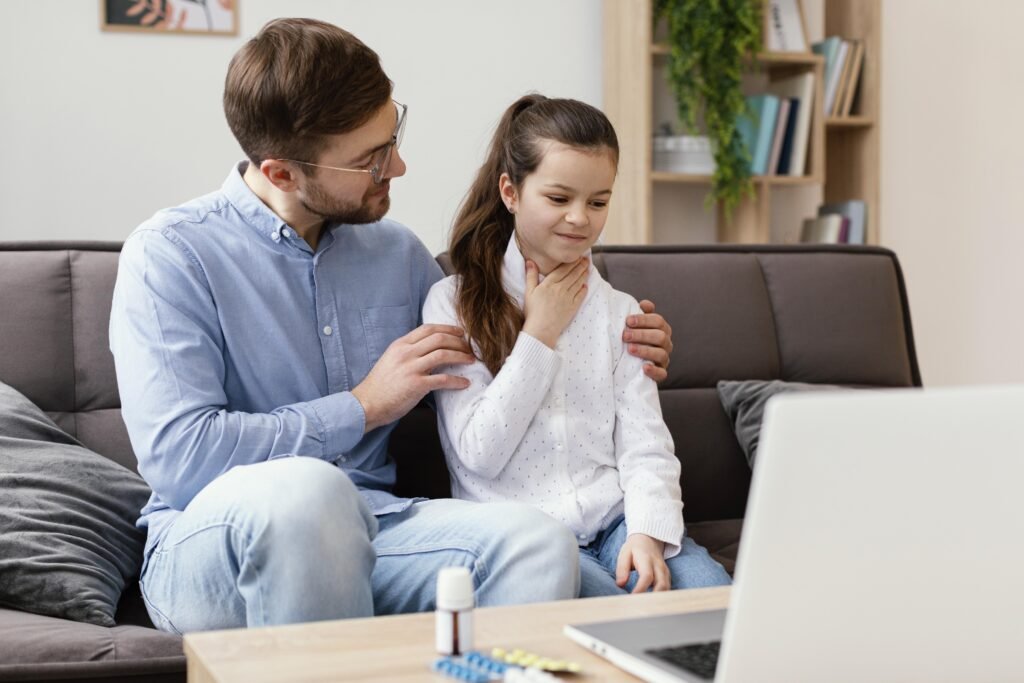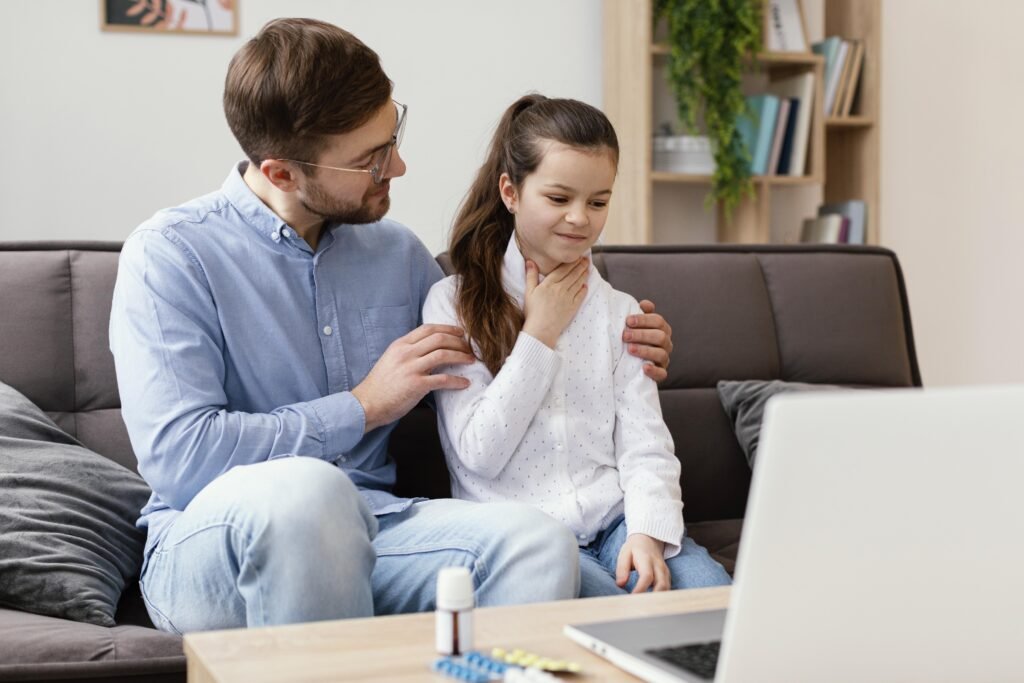Divorce is never easy, and when children are involved, parents often face the added challenge of navigating how the separation will impact their child’s emotional and psychological well-being. At Amy Brown Counseling, we understand that every child responds to divorce in their own way. Age and developmental stage play a critical role in how they process and cope with the changes that divorce brings. In this blog, we’ll explore how divorce affects children at different ages and offer guidance on how parents can best support their children during and after the transition.
This article is especially relevant for families in Missouri, including the Chesterfield and St. Louis areas, where our licensed therapists provide expert care through secure virtual therapy sessions for children ages 7 and up.
Infants and Toddlers (Ages 0–3)
Even though infants and toddlers cannot comprehend the concept of divorce, they are deeply sensitive to changes in their environment and caregivers’ emotional states. They may not understand words like “separation” or “divorce,” but they feel the tension, stress, and disruptions in routine that often accompany the breakup of a family.
Common Responses:
- Increased clinginess
- Difficulty with sleeping or eating
- Regression in milestones (such as potty training or speech)
- Irritability and fussiness
How Parents Can Help:
- Maintain a predictable routine
- Offer physical comfort and affection
- Avoid exposing children to conflict
- Keep both parents consistently involved when possible
While virtual therapy is not typically suited for this age group, parents can benefit from supportive sessions with our clinicians to learn helpful strategies and tools.
Preschoolers (Ages 3–6)
Preschool-aged children are beginning to develop a sense of self and basic relationship understanding. Their thinking is still very concrete and focused on themselves. They may assume the divorce is their fault or believe their behavior caused one parent to leave.
Common Responses:
- Magical thinking or fantasies about parents reuniting
- Separation anxiety
- Aggressive or withdrawn behaviors
- Regression (like bedwetting or baby talk)
How Parents Can Help:
- Reassure them repeatedly that the divorce is not their fault
- Use simple, clear language
- Read books about divorce to help them process
- Allow them to play as a form of emotional expression
Although some younger children may have difficulty with online sessions, Amy Brown Counseling provides strategies for parents navigating separation with young children and offers support as the child matures.
Early Elementary (Ages 7–9)
At this stage, children can begin to understand that divorce is a permanent change. They are often concerned about fairness, and may try to take sides or mediate the conflict. They might also struggle with changes in routine or new living arrangements.
Common Responses:
- Sadness, anger, or confusion
- Trouble concentrating in school
- Physical symptoms like headaches or stomachaches
- Loyalty conflicts between parents
How Parents Can Help:
- Validate their feelings
- Do not put them in the middle of adult disagreements
- Be consistent with co-parenting and schedules
- Encourage open conversations
Children ages 7 and up are excellent candidates for virtual therapy. At Amy Brown Counseling, our play-based and creative interventions help children in Missouri navigate divorce-related emotions in a developmentally appropriate way.
Tweens (Ages 10–12)
Tweens are beginning to develop greater cognitive reasoning and emotional awareness. They may have strong opinions about the divorce and are more likely to want explanations or fairness. Their social world is also becoming more important.
Common Responses:
- Angry outbursts or withdrawn behavior
- Attempts to control or “fix” the family situation
- Acting overly mature or responsible
- Frustration with new routines or housing
How Parents Can Help:
- Set clear but flexible expectations
- Reassure them that both parents still love them
- Offer tools for self-expression like journaling or drawing
- Avoid speaking negatively about the other parent
Tweens often respond well to virtual therapy. Our team creates an engaging online environment where children in Missouri can work through their feelings and learn healthy coping skills.
Teenagers (Ages 13–18)
Adolescents are particularly impacted by divorce because they are already exploring identity, independence, and emotional boundaries. They may feel disillusioned, betrayed, or even numb about the situation. While they often seem mature, teens are still emotionally developing.
Common Responses:
- Anxiety or depression
- Risk-taking behaviors
- Pulling away from family or increased irritability
- Difficulty with trust in relationships
How Parents Can Help:
- Maintain open communication without pressuring them
- Avoid oversharing adult details or venting to your teen
- Allow them to express complex emotions without judgment
- Provide access to professional support if needed
Teenagers across Missouri can benefit from our virtual therapy services. Whether they’re in St. Louis, Chesterfield, or surrounding areas, we offer secure, teen-friendly sessions tailored to their needs.
Young Adults (Ages 18–25)
Even though young adults are legally adults, many are still highly affected when their parents divorce. This can lead to reevaluating beliefs about family, security, and relationships. It’s common for college students or early-career young adults to feel destabilized when a parental relationship ends.
Common Responses:
- Emotional distancing or avoidance of family
- Struggles with relationships or trust
- Guilt over not being around to support siblings or a parent
- Anxiety or depression
How Parents Can Help:
- Respect their emotional experience and independence
- Avoid leaning on them for emotional support
- Be honest but age-appropriate when communicating about the situation
- Offer therapy support without pressure
Amy Brown Counseling offers virtual therapy for young adults throughout Missouri. Our therapists support clients during major life transitions, including navigating the emotional effects of family changes.
How Amy Brown Counseling Can Support You
Understanding how divorce impacts children at each developmental stage empowers parents to respond with empathy and care. No matter the age of your child, tween, teen, or young adult, the right support can help ease the emotional challenges and provide them with tools to thrive.
At Amy Brown Counseling, we offer virtual therapy across Missouri, including Chesterfield and the greater St. Louis area. We work with:
- Children ages 7 and up
- Tweens and teens
- Young adults
- Parents seeking support during separation or co-parenting
We provide secure, HIPAA-compliant online therapy sessions designed to meet each client’s unique needs. If your child is struggling with the emotional impact of divorce, our experienced team is here to help.
If you’re ready to schedule your first session, fill out our new client inquiry form and take the next step toward healing and support for your family.



